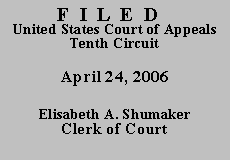

TENTH CIRCUIT
| UNITED STATES OF AMERICA,
Plaintiff-Appellee, |
|
| v. | |
| DANIEL VENCES-FLORES,
Defendant-Appellant. |
|
Vences-Flores pled guilty, with the benefit of a plea agreement, to the single-count indictment.(2) In exchange for his guilty plea, the government agreed to recommend a sentence at the bottom of the applicable guideline range, and to move for an additional one-point reduction based on acceptance of responsibility. The presentence report (PSR), which took into consideration the government's agreement to move for an additional one-point reduction for acceptance of responsibility, calculated an offense level 21 and a criminal history category IV, resulting in an advisory guideline range of 57-71 months. Vences-Flores filed a sentencing memorandum arguing that he should not have received two criminal history points for committing the instant offense while on probation, and that several mitigating circumstances warranted a sentence below the advisory guideline range. At sentencing, the district court addressed each of Vences-Flores' arguments. In particular, the district court agreed not to include the two challenged criminal history points in its guideline calculation, but stated that Vences-Flores' remaining criminal history points still placed him at Category IV. The district court then discussed the sentencing factors contained in 18 U.S.C. § 3553(a), and sentenced Vences-Flores to fifty-seven months of imprisonment.
Counsel for Vences-Flores has filed a brief pursuant to Anders v. California, 386 U.S. 738 (1967). Anders holds that "if counsel finds his case to be wholly frivolous, after a conscientious examination of it, he should so advise the court and request permission to withdraw." Id. at 744. Upon receiving an Anders brief, we are required to conduct "a full examination of all the proceedings" in order "to decide whether the case is wholly frivolous." Id. The Anders brief filed by Vences-Flores' counsel identifies one appellate issue: whether Vences-Flores' sentence is reasonable.(3)
We now review sentences for "reasonableness," looking to the factors set forth in 18 U.S.C. § 3553(a) for guidance. See United States v. Morales-Chaires, 430 F.3d 1124, 1128 (10th Cir. 2005). "[A] sentence that is properly calculated under the Guidelines is entitled to a rebuttable presumption of reasonableness. This is a deferential standard that either the defendant or the government may rebut by demonstrating that the sentence is unreasonable when viewed against the other factors delineated in § 3553(a)." United States v. Kristl, 437 F.3d 1050, 1054 (10th Cir. 2006) (citation omitted).
At sentencing, Vences-Flores did not object to the PSR's calculation of his guideline range, and he specifically agreed with the district court that his criminal history category would not be impacted if the district court did not consider the two disputed criminal history points. The district court thoroughly considered the § 3553(a) factors, and responded to each of Vences-Flores' arguments for a sentence below the advisory guideline range. We conclude that there is nothing in the record to suggest that Vences-Flores' sentence, which was at the bottom of the advisory guideline range, was unreasonable.
AFFIRMED. Counsel's motion to withdraw is GRANTED.
Entered for the Court
Mary Beck Briscoe
Circuit Judge
*.This order and judgment is not binding precedent, except under the doctrines of law of the case, res judicata, and collateral estoppel. The court generally disfavors the citation of orders and judgments; nevertheless, an order and judgment may be cited under the terms and conditions of 10th Cir. R. 36.3.
1. We note that the government did not file a response brief.
2. After Vences-Flores entered his guilty plea, but prior to the issuance of his presentence report, the Supreme Court decided United States v. Booker, 543 U.S. 220, 245 (2005), which rendered the Sentencing Guidelines advisory, rather than mandatory.
3. Vences-Flores' counsel advises us that Vences-Flores does not wish to challenge the validity of his guilty plea.